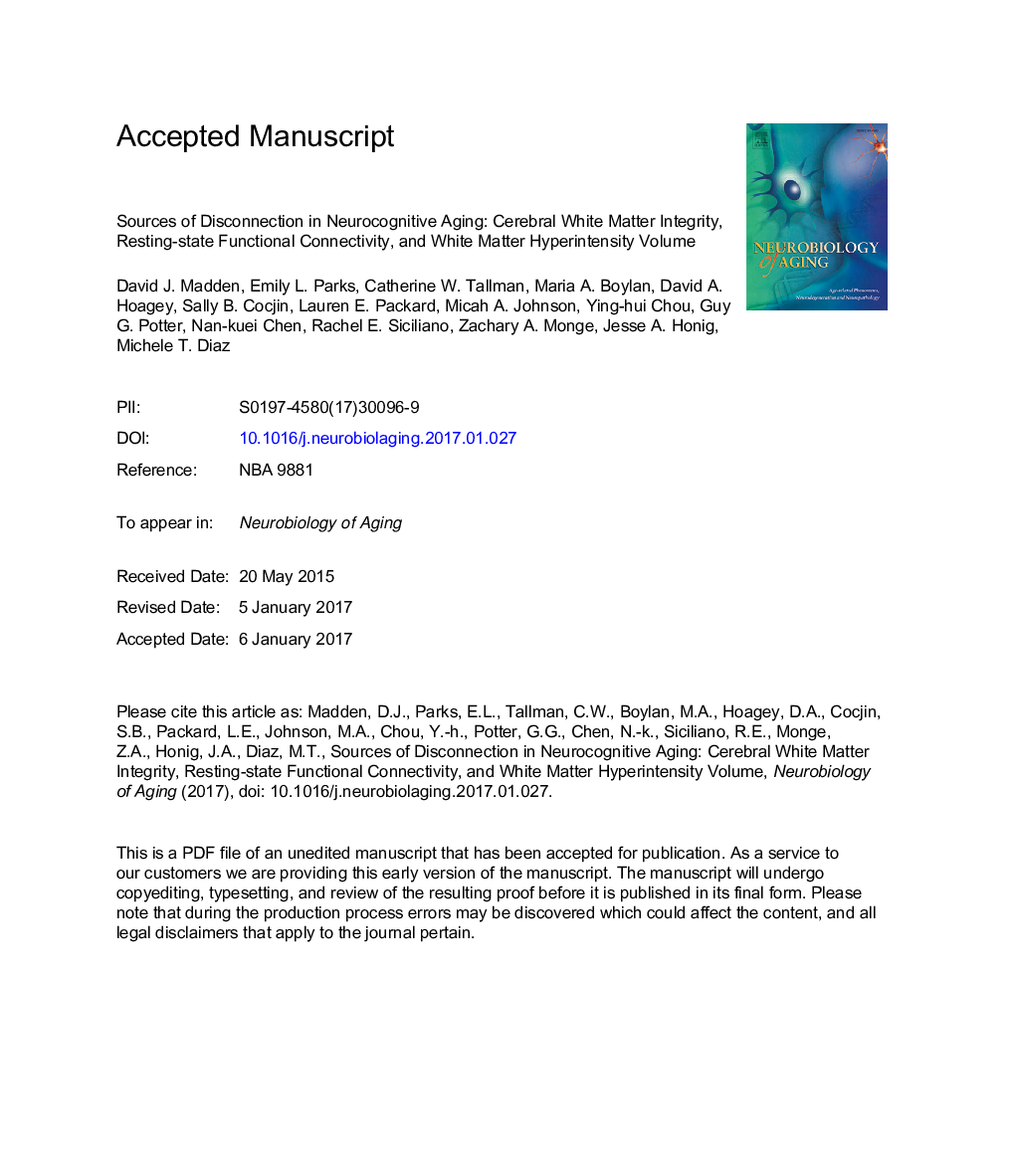| Article ID | Journal | Published Year | Pages | File Type |
|---|---|---|---|---|
| 4932561 | Neurobiology of Aging | 2017 | 74 Pages |
Abstract
Age-related decline in fluid cognition can be characterized as a disconnection among specific brain structures, leading to a decline in functional efficiency. The potential sources of disconnection, however, are unclear. We investigated imaging measures of cerebral white-matter integrity, resting-state functional connectivity, and white-matter hyperintensity volume as mediators of the relation between age and fluid cognition, in 145 healthy, community-dwelling adults 19-79Â years of age. At a general level of analysis, with a single composite measure of fluid cognition and single measures of each of the 3 imaging modalities, age exhibited an independent influence on the cognitive and imaging measures, and the imaging variables did not mediate the age-cognition relation. At a more specific level of analysis, resting-state functional connectivity of sensorimotor networks was a significant mediator of the age-related decline in executive function. These findings suggest that different levels of analysis lead to different models of neurocognitive disconnection, and that resting-state functional connectivity, in particular, may contribute to age-related decline in executive function.
Related Topics
Life Sciences
Biochemistry, Genetics and Molecular Biology
Ageing
Authors
David J. Madden, Emily L. Parks, Catherine W. Tallman, Maria A. Boylan, David A. Hoagey, Sally B. Cocjin, Lauren E. Packard, Micah A. Johnson, Ying-hui Chou, Guy G. Potter, Nan-kuei Chen, Rachel E. Siciliano, Zachary A. Monge, Jesse A. Honig,
